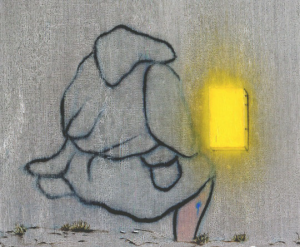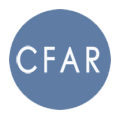Clinical Training Programme
Unlike many other professions, psychoanalysis is not based on the transmission of a body of knowledge that, once learnt, would make one a ‘psychoanalyst’. Rather, it involves the long and painful process of putting knowledge in question: the knowledge that one has constructed about one’s own life, one’s family and, indeed, the idea that knowledge is able to answer all the questions that matter to us. This putting in question is the psychoanalytic process itself, and for this reason, the central part of psychoanalytic training is one’s own analysis.

Seminars and study groups have an important role in helping us to formulate the theory of mental processes and to conceptualise a clinical situation, but they do not produce psychoanalysts, however useful the resulting ideas may be when applied to other fields. In the context of a training, these activities become significant when the trainee is engaged in the process of a psychoanalysis. The ability to practise psychoanalysis depends largely on how far someone has got in their own analysis, and then, in turn, on the decision to continue the work of analysis in relation to others.
The paradox here is that if someone decides to train as an analyst, since this decision is linked to unconscious processes, it may well turn out that the analysis of these processes results in a questioning of the initial aim to be an analyst. In this sense, anyone embarking on a training does so at their own risk. Since one can never predict how far an analysis will go, there is no guarantee that a trainee will become an analyst, and since their initial aims will be put in question, there is no guarantee that they will even want to become one. These considerations suggest that an analytic formation is rather different from trainings in other fields, and the problems involved are the subject of frequent debate and seminars within CFAR, as well as in the Lacanian movement in general.
Selection of Candidates for Clinical Training Programme
Each candidature is assessed individually after having filled in an application form if they wish to apply for CFAR’s psychoanalytic training programme. Please note that no detailed feedback will be provided for applications to CFAR’s Clinical Training.
The Centre offers a training programme in Lacanian psychoanalysis. The training lasts for a minimum of four years; the trainee may eventually become a practicing clinician or in some cases may choose to work from a psychoanalytic perspective in another field (eg, research, the arts).
Trainees embarking on the training programme need to:
- be in analysis for a period of twelve months at least twice a week prior to the start of the Clinical Training Programme and
- have completed the Introductory Programme or an equivalent to it. The Training Programme is made up of the following components:
- Attendance by trainees at the clinical seminar of the Centre for the full period of their registration. This seminar explores case material brought to the seminar by trainees, the analysis of existing case material in the analytic literature, and case material brought to the seminar by the seminar tutor.
- Participation in CFAR’s public seminar programme.
- Preparation of a minimum of four papers of around 5,500 words. At least two of these papers must be based on clinical material.
- A personal analysis undertaken throughout the period of registration. Analysts should be recognised Lacanian Psychoanalysts, though established analyses, started prior to application for the training, may be accepted by the Training Committee for the purposes of training.
- Tutorials with a tutor whose function is to discuss problems and questions with the trainee. He or she will do this by personal discussions with the trainee. The tutor will be available to advise on whether it is appropriate to commence clinical work, and advise on supervision and on the presentation of clinical material to the clinical seminar. When the trainee wishes to apply for membership of CFAR, the final papers can be presented to the Training Committee only with the agreement of the tutor.
- Supervised analysis of two analysands for a period of at least eighteen months each, in weekly supervision, as a condition of qualification from the Training Programme. Trainees should have had a minimum of two supervisors during the course of their training.
Further information and application forms can be obtained online by clicking here or by writing to:
Berkeley House, 15 Hay Hill, London W1J 8NS (NB: This is a postal address only)
